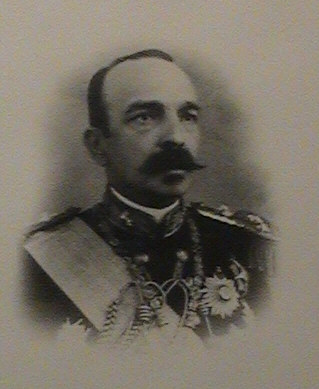Related Research Articles

Francisco José Pereira Pinto Balsemão is a Portuguese businessman, former journalist and retired politician, who served as Prime Minister of Portugal, from 1981 to 1983.

Seia is a municipality in Guarda District in Portugal. The population in 2021 was 21,755, in an area of 453.69 square kilometres (175.17 sq mi). Its urban population is about 7,000. Seia was elevated to city status on July 3, 1986. The municipality is situated on the northwestern slope of Serra da Estrela, the highest mountain range in mainland Portugal, with a top height of 1993 meters. The present Mayor is António Luciano Silva Ribeiro, elected by the Socialist Party. The municipal holiday is July 3. Seia has an annual cinema festival called CineEco that focuses on films with ecological and natural themes.
Joaquim Jorge de Magalhães Saraiva da Mota was a Portuguese lawyer and politician.
António Luciano Pacheco de Sousa Franco, GCC, GCSE was a Portuguese economist and politician.

Ernesto Augusto de Melo Antunes junior, GCL was a Portuguese military officer who had a major role in the Carnation Revolution of 25 April 1974.

Miguel Andresen de Sousa Tavares is a Portuguese lawyer, journalist and writer.
Jorge Torlades O'Neill, was the titular and official head of the Clanaboy O'Neill dynasty, whose family has been in Portugal since the 18th century.
Hugo José Jorge O'Neill was the head of the Clanaboy O'Neill dynasty, whose family has been in Portugal since the 18th century.
Carlos O'Neill, was the titular head of a branch of the Clanaboy O'Neill dynasty, whose family has been based in Portugal since the 18th century.

Manuel António Vassalo e Silva was an officer of the Portuguese Army and an overseas administrator. He was the 128th and the last Governor-General of Portuguese India.

Lumiar is a freguesia and typical quarter of Lisbon, the capital city of Portugal. Located in northern Lisbon, Lumiar is east of Carnide, north of Alvalade, west of Olivais, and south of Santa Clara and partially of Lisbon's border with Odivelas. The population in 2021 was 46,334.
The Camões family were descendants of the 14th-century Portuguese nobleman Vasco Pires de Camões.

Baltazar Leite Rebelo de Sousa, GCIH was a Portuguese politician and a former minister and member of parliament and medicine professor.
Francisco José Caeiro was a Portuguese politician and former Minister and law professor.
Manuel Alfredo Tito de Morais, was a Portuguese politician.
Miguel António de Sousa Horta Almeida e Vasconcelos, 2nd Baron of Santa Comba Dão was a Portuguese nobleman.
João Maria Barreto Ferreira do Amaral, 2nd Baron of Oliveira Lima, OC was a Portuguese nobleman.

Sebastião Custódio de Sousa Teles, also known as Sebastião Teles, Sousa Teles, or in contemporary Portuguese as Sousa Telles, was a Portuguese politician and military officer. After a career in military logistics and education, he served multiple times as Minister of War, and briefly as President of the Council of Ministers from 11 April to 14 May 1909 during the penultimate year of the Portuguese constitutional monarchy.
References
- Costados Alentejanos, II, António Luís de Torres Cordovil Pestana de Vasconcelos, Edição do Autor, Évora 2006, N.º 41